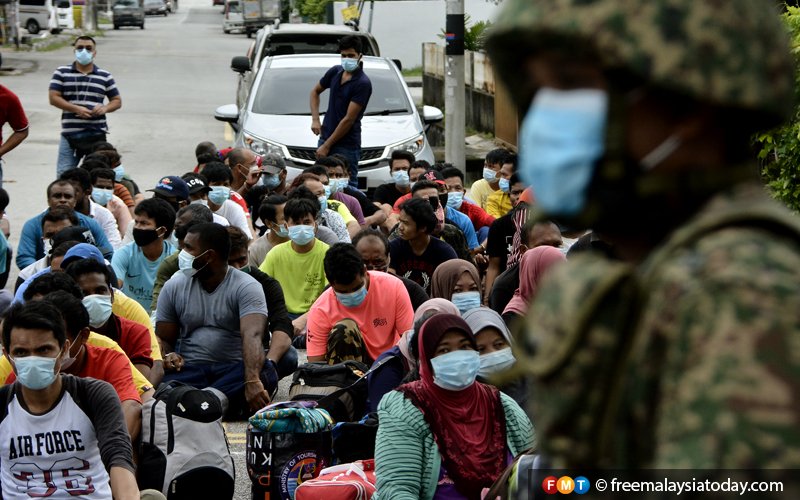
KUCHING: A three-and-a-half-month recalibration programme for illegal immigrants in Sarawak is expected to gradually resolve the problems in the construction industry which is short of 5,000 workers.
Sim Kiang Chiok, the Kuching chairman of the Sarawak housing and real estate development association, said several other industries also face the same problem.
He said many foreign workers who had left the state before the movement control order in March last year were unable to return because of various regulations and the closure of borders.
“By allowing illegal immigrants who are already in the state due to overstaying or misusing of their pass to be employed legally will help to resume, restore and move the economy forward,” he told FMT.
He said several industries in Sarawak, especially plantations and construction, were unable to grow without the foreign workers.
Deputy chief minister Douglas Uggah Embas announced recently that the state government had approved the implementation of a recalibration programme for illegal immigrants, from March 15 to June 30.
Under the programme, illegal immigrants can either choose to return to their home country or work legally in Sarawak.
However, the programme is only for those who overstayed or misused passes by working in another industry. Illegal immigrants who entered the state without proper documentation will not be eligible for employment.
The employers have to pay a fine of between RM300 and RM500 for the offences by the undocumented migrants before they can be legalised.
Sarawak Business Federation (SBF) secretary-general Jonathan Chai said the plantation industry in the state has an estimated shortage of 40,000 workers. Thus legalising undocumented migrants is something necessary.
“The (shortage) are mainly the 3D jobs – dirty, dangerous and difficult – that the locals are less interested in. Thus, we need the foreign workforce to support the industry,” he said.
“The programme will help to enhance the security of the state during this pandemic; at least it provides a better way to trace the whereabouts of those workers in case contact tracing is required,” he added. - FMT



No comments:
Post a Comment
Note: Only a member of this blog may post a comment.